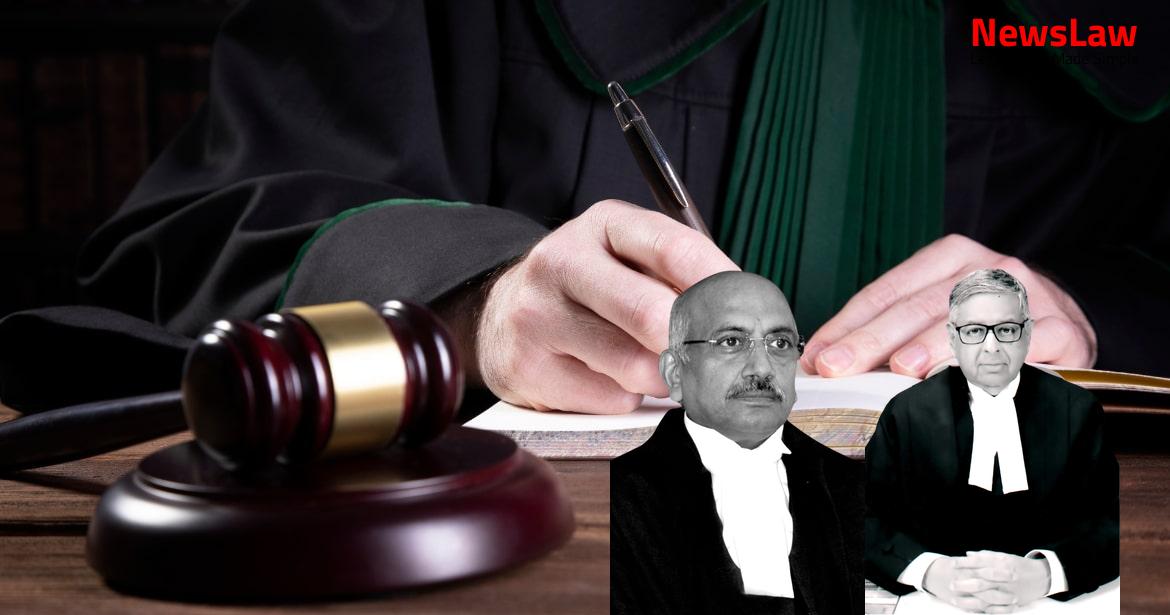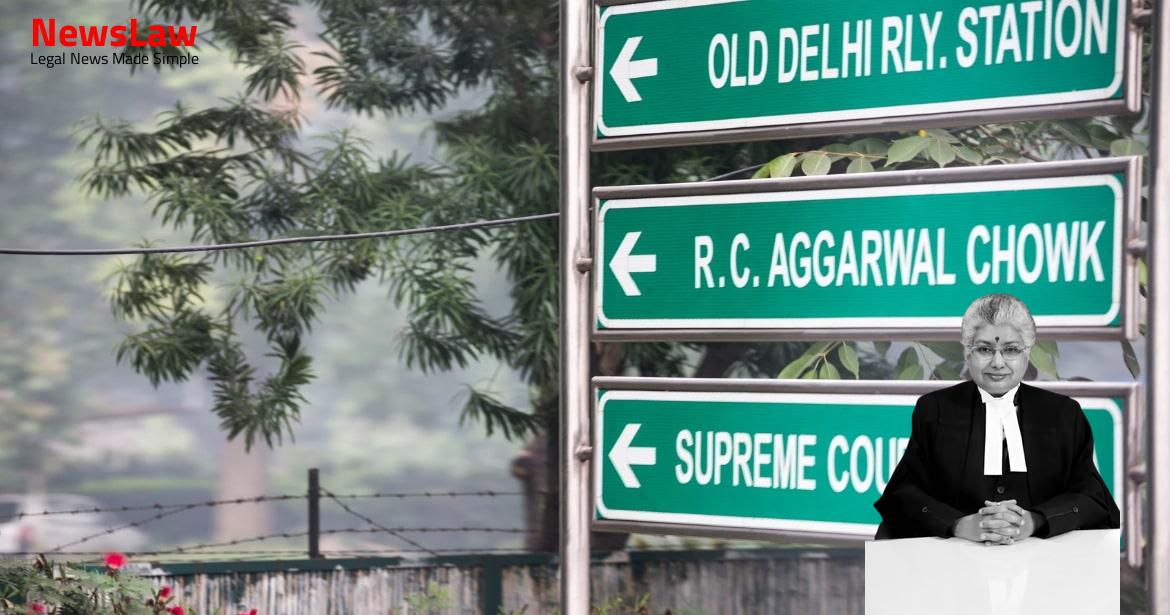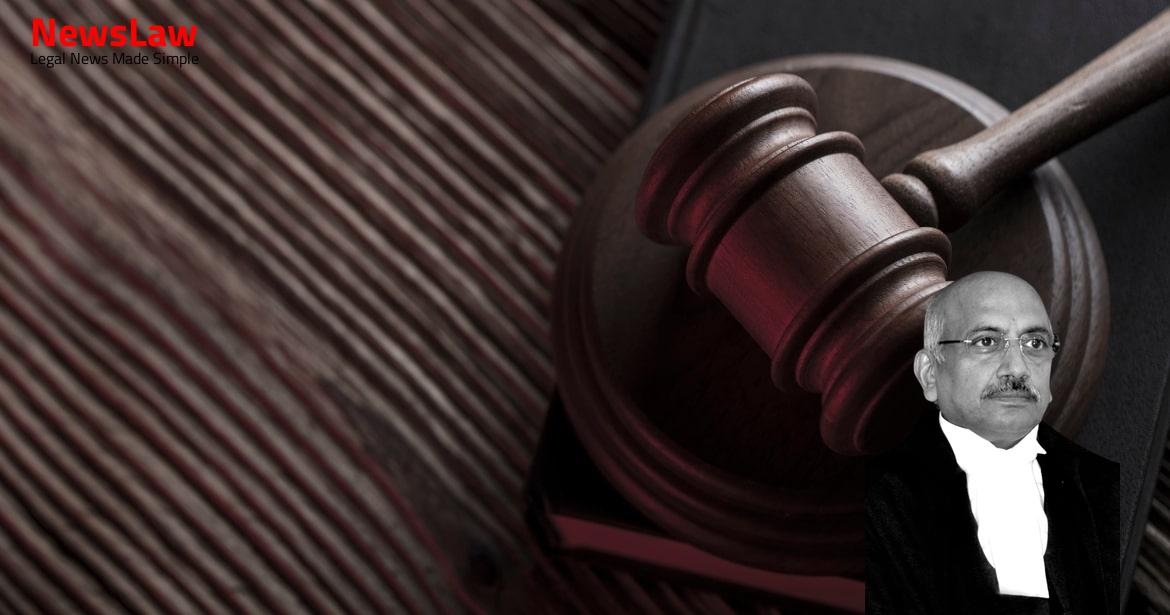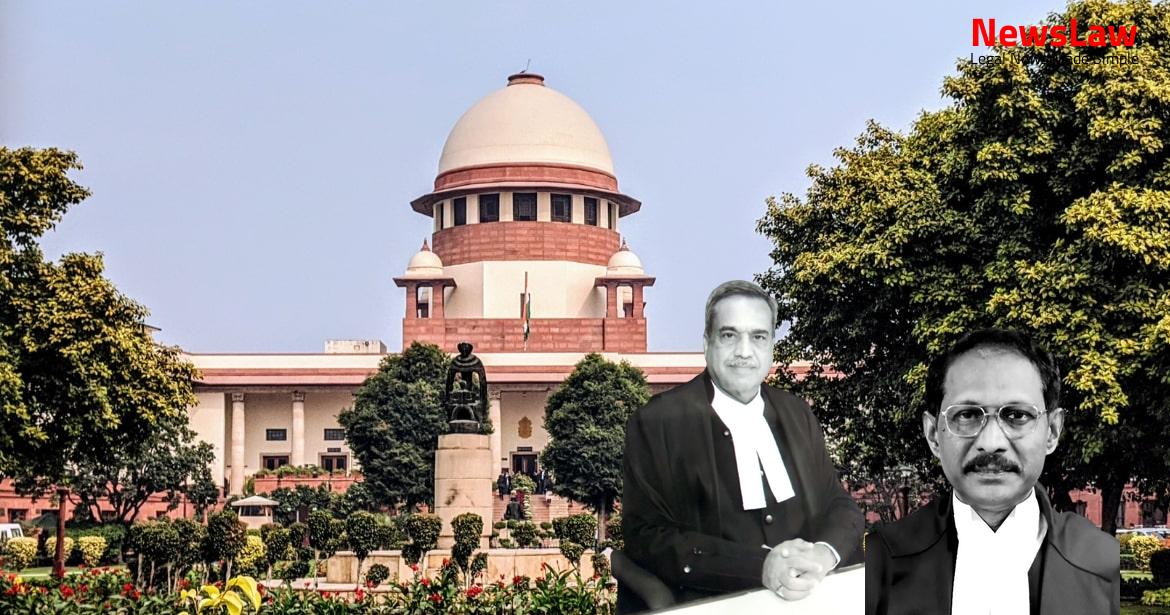Dive into a comprehensive legal analysis of a recent court case focusing on a dispute regarding inter-se seniority and eligibility criteria. The court’s examination of the rules and principles involved provides valuable insights into the complexities of such matters. Stay tuned to unravel the finer details of the court’s decision.
Facts
- The appellants had filed a writ petition seeking invalidation of the recommendation of the DPC in their meeting held on 3 March 2014.
- The second writ petition was also dismissed.
- The dispute in this appeal is regarding the question of seniority between the appellants and respondent no.4 (K) in the cadre of senior lecturer under the SCERT, Department of Education, Government of Nagaland.
- The appellants collectively seek seniority over K.
- The State of Nagaland, also a respondent, supports the appellants.
- K was partially successful in the second round of litigation initiated by writ petition W.P (C) No 126(K) of 2014.
- At the time of regularisation of K, the 2003 Rules were not in existence.
- The High Court remanded the matter to the DPC stating that their previous recommendation did not consider the 2003 Rules.
- A fresh DPC meeting was held on 2 November 2015 to review previous decisions that were set aside by the High Court.
- The DPC retained their earlier decision on the seniority list, providing their own explanation for compliance with the 2003 Rules.
- In two writ petitions, K sought to quash the fresh DPC recommendations from the meeting on 2 November 2015.
- The Single Judge allowed the writ petitions, leading to an appeal by the appellants before the Division Bench.
Also Read: Non-compliance with requirements of Section 81(3) of the Representation of the People Act, 1951
Arguments
- Learned counsel for the appellants argued that K did not have a B.Ed degree when she joined as senior lecturer.
Also Read: Setting Minimum Qualifying Marks for Viva Voce: A Question of Legality
Analysis
- The 2003 Rules must supersede any contrary provisions in earlier legal instruments.
- Time spent on contractual basis cannot be factored in for determining length of service in feeder posts as per Schedule II of the 2003 Rules.
- Regularization of the appellants in the post of senior lecturer was after the 2003 Rules became operative in April 2007.
- The appellants regularized as senior lecturers cannot claim vested legal rights based on conditions in another individual’s promotional recommendation.
- Birth in the cadre occurs upon regularisation in a grade – there is no provision for encadrement during officiating period in the 2003 Rules.
- Service in a promotional post on officiating basis cannot be factored in for calculating length of service in a specific post as per DPC principles.
- The principle of non-interference with DPC recommendations is not absolute, with limited judicial review possible in certain cases.
- Appellants’ eligibility for promotion to senior lecturer post did not meet the required stipulation of five years of service in the feeder grade as per 2003 Rules.
- Time spent in immediate superior grade on ad-hoc basis should not be computed for determining length of service in that cadre.
- Regularization of appellants in their officiating posts as senior lecturers was on 8 November 2007.
- Ad-hoc period in the feeder cadre could not be counted for appellants’ promotion eligibility according to representations made.
- K’s regularisation and seniority in the senior lecturer grade should be computed from 1993 as per the argued yardstick.
- The starting point for calculating the five years of service length in the feeder cadre should be 15 January 2001 as per the operational 2003 Rules.
- Judgment of Coordinate Bench in Girish Kumar vs State of Maharashtra dealt with continuous service.
- In exceptional cases, judicial intervention is necessary as seen in Badrinath vs Government of Tamil Nadu.
- Constitution Bench in Direct Recruit Class II Engineering Officers’ Association defined ‘continuous service.’
- Other cases supporting the interpretation of ‘continuous service’ include Swapan Kumar Pal vs Samitabhar Chakraborty, State of Rajasthan vs Jagdish Narain Chaturvedi, Amarjeet Singh vs Devi Ratan, and Malook Singh vs State of Punjab.
- Regularization of appellants occurred after the establishment of 2003 Rules.
- The Schedule of the 2003 Rules under Article 309 could not be overridden by a clause in the Memorandum promoting K as per Union Public Service Commission vs L.P. Tiwari and Union of India vs S.K. Goel.
- The appellants’ entry in the promotional cadre must meet the eligibility criteria as specified.
- Interpretation exceptions made in Girish Kumar case are not applicable to eligibility criteria.
- One of the eligibility criteria required five years of continuous service in the feeder post.
- Continuous service requirement must be adhered to and not construed solely for determining inter-se seniority in the promotional post.
Also Read: Willful Disobedience and Rectification of Court Orders
Decision
- The court does not wish to interfere with the judgment under appeal.
- The authorities are directed to take necessary steps based on the seniority positions of the appellants and respondent no. 4 according to this judgment.
- The appeal has been dismissed, and any pending applications are disposed of.
- There will be no order as to costs.
Case Title: IMLIKOKLA LONGCHAR Vs. THE STATE OF NAGALAND (2022 INSC 1064)
Case Number: C.A. No.-007166-007166 / 2022



